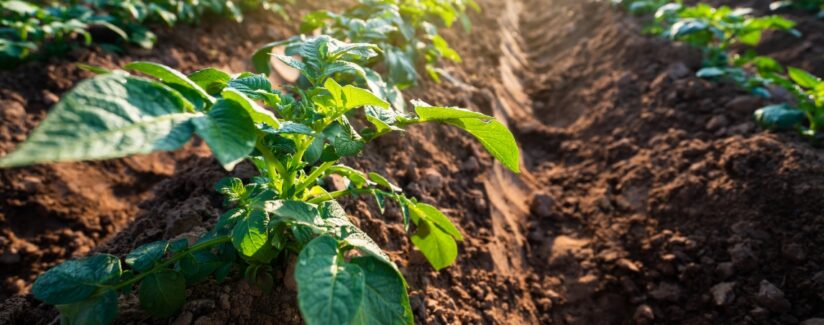
How Can Gene Editing Make the Food System More Sustainable?
Gene editing has tremendous potential to advance the fields of medicine and agriculture. Scientists are just starting to explore and develop a variety of strategies to successfully apply gene editing to improve human, animal and plant health, while minimizing the impact on the environment. Studies have found that gene therapy helps patients undergoing certain cancer treatments. The first gene therapy for sickle cell disease is expected to be approved later this year. In food and agriculture, gene editing technology is being used to make foods healthier and better tasting.
Gene editing could also make a significant difference in making agriculture more sustainable. By helping plants and animals become more resilient to climate change and disease, the technology could lead to a more resilient and affordable food supply.
Best Food Facts contacted three experts – Dr. Rodolphe Barrangou, Distinguished Professor at North Carolina State University, Dr. Zhongde Wang, Professor at Utah State University, and Dr. Jennifer Kuzma, Goodnight-NC GSK Foundation Distinguished Professor in Social Sciences at North Carolina State University and co-founder and co-director of the Genetic Engineering and Society Center – to find out more about gene editing and its use in food production. Read more in the series:
Improving animal welfare
In much the same way that gene therapy is being researched to cure diseases in humans, researchers are using gene editing to help animals. Dr. Wang’s lab at Utah State University is among the first to employ gene editing techniques to improve the genetics of livestock.
“In livestock, we are in the process of editing the genomes of cattle, sheep, goat and alpaca both for agricultural and medical applications,” he said. “In livestock, gene editing can be used to make the animals disease-resistant and better able to handle cold and heat stresses.”
Here are a few real-world examples of how gene editing is being applied to help animals live better. Gene editing is helping pigs develop resistance to a devastating virus called PRRS (Porcine Reproductive and Respiratory Syndrome), which affects pork producers all over the world. For cattle, the FDA recently approved the sale of beef from cattle with genes altered with CRISPR to have shorter hair. These “slick coat” cattle are better acclimated to live in warm climates.
Safety for animals and people
Is gene editing safe for the animals involved?
Dr. Kuzma: “Animals are regulated a bit more stringently by the Food and Drug Administration. The FDA has a mandatory policy to review all animals that are genetically altered, which provides more assurance of safety.”
Is it safe to eat food made from animals that have been edited?
Dr. Wang: “With scientific vigor, regulatory oversights and approvals, it is safe to consume foods from gene-edited animals.”
Learn more about the safety of gene edited foods.
Improving sustainability
By helping farmers to grow more food by using less land and water, gene editing could make agriculture more sustainable. Dr. Barrangou is researching gene editing to enable trees and forests to be more resilient to climate change.
Dr. Barrangou: “Think of bio-resilience as the ability of something to sustain itself in the face of global warming, in the face of drought or pest, whether it’s insects, viruses, bacteria or fungi. If you’re a tree and you’re in place for hundreds of years, you can’t go and escape. You can’t migrate north if it’s getting hot. You can’t migrate closer to the water if it’s getting dry. So we have to breed in those resistance traits to provide a more sustainable and resilient forest, whether you’re going to use that to grow fruits or nuts or capture carbon.”
Gene editing helps scientists to speed the natural process of breeding and reproducing, which makes it especially important in regard to climate change.
Dr. Barrangou: “The sense of urgency and timelines under which we can develop those products is very important. There’s a heightened sensitivity and urgency to address sustainable farming.”
Gene editing is an emerging technology used to treat disease in humans and animals. It could also help scientists develop plants and animals that are more resilient in the face of climate change.




























